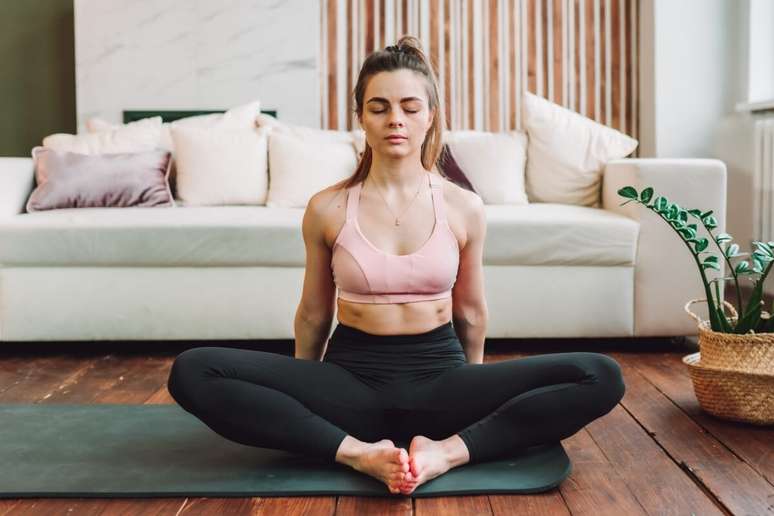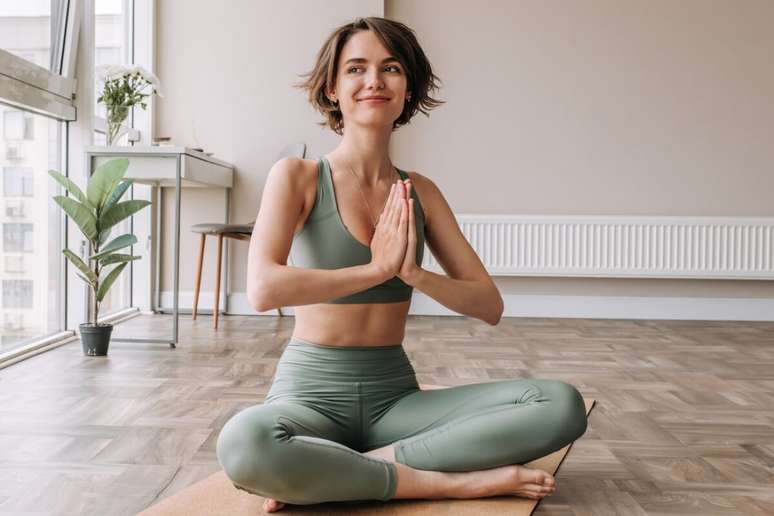Experts explain how the practice can improve the quality of life of people with attention deficit hyperactivity disorder
Yoga, an Indian technique characterized by the combination of physical exercise, meditation, relaxation and breathing control, offers numerous benefits for physical and mental health, such as fighting inflammation, relieving pain, improving muscle conditioning and reducing stress and anxiety.
“Yoga is a sport. In the brain we have different areas that are activated with certain movements and postures. We are a sedentary society and our activities do not normally require great physical effort. The wide variety of postures in yoga stimulates the production of neurotransmitters and brain activation”, comments Dr. Júlio Cézar Reis, a psychiatrist at the Suassuna Institute.
However, one of the little-known benefits of the practice is in relation to attention deficit hyperactivity disorder (ADHD). National and international studies, carried out with children, have revealed that yoga can alleviate the symptoms of the disorder. Below, see more on the topic:
How do yoga exercises help relieve ADHD symptoms?
THE ADHD is a chronic neurobiological disorder characterized by inattention, agitation, and impulsivity. “Inattention deficit is actually characterized by a difficulty in intentionally maintaining attention on a specific goal, called voluntary attention,” explains Dr. Júlio Cézar Reis.
Restlessness, according to the doctor, “is better defined as psychomotor agitation, because in some people it can predominate in the motor field and in others in the psychic field. Impulsivity refers to the difficulty of inhibiting oneself. Dopamine in the prefrontal cortex is related to our ability to inhibit ourselves. The prefrontal cortex is essential for self-regulation and inhibiting socially inappropriate behaviors,” adds the psychiatrist.
The practice promotes bodily and mental self-awareness
According to Dr. Fabiano de Abreu Agrela Rodrigues, a master’s in psychology and a doctorate in neuroscience, yoga exercises improve attention and concentration through breathing techniques (pranayama) and postures (asana), as they train the brain to focus and remain focused. The practice also promotes bodily and mental self-awareness, helping to identify and control impulses and agitations.
Yoga also reduces aggression and forgetfulness, secondary symptoms of the disorder. This is because the activity promotes “relaxation, emotional and mental balance, resilience, patience, centering and concentration on the present moment,” reveals yoga instructor Fernanda Raiol.
Finally, according to Patrícia Galan, yoga teacher of the Evoque Academia network, the practice also promotes socialization, refines motor coordination and improves sleep, important factors for the well-being of all, especially for people with ADHD.
Advantaged groups
Although yoga helps different groups with ADHD, adults and children benefit the most. According to Francisco Kaiut, a yoga teacher, chiropractor and therapist Of course, adults have more control over their bodies and minds, which means improvements are quickly noticeable. In turn, when practice begins early, children are able to develop self-regulation skills early on.

How often should you practice yoga?
To reap the benefits, Francisco Kaiut says the recommended frequency for practicing yoga is 3 to 5 times a week, with 30 to 60-minute sessions adapted to each individual’s abilities. “The benefits of yoga can be seen in a few weeks of regular practice, but significant improvement can take months. Consistency is key to achieving lasting results,” he adds.
Habits and treatments that should accompany the activity
In addition to practicing yoga, to significantly reduce the symptoms of the disorder, it is necessary to invest in healthy habits. “In the treatment of ADHD, it is essential to avoid excessive caffeine consumption, follow an adequate and balanced diet, avoid processed foods, avoid smoking, alcoholic beverages and drug use. In the field of physical activity, aerobic exercises and, in particular, collective activities, such as football, are useful as professional training”, emphasizes Dr. Júlio Cézar Reis.
In addition, you also need to be up to date with your treatments. Multidisciplinary psychoanalyst Raquel Junqueira comments that psychological and holistic therapies are excellent for people with ADHD. Regarding the level of medications, she says that there are medications to improve brain conditions, as well as vitamin supplements that help with neurological responses. However, it is important to remember that these types of medications can only be prescribed by a medical specialist.
Source: Terra
Ben Stock is a lifestyle journalist and author at Gossipify. He writes about topics such as health, wellness, travel, food and home decor. He provides practical advice and inspiration to improve well-being, keeps readers up to date with latest lifestyle news and trends, known for his engaging writing style, in-depth analysis and unique perspectives.









